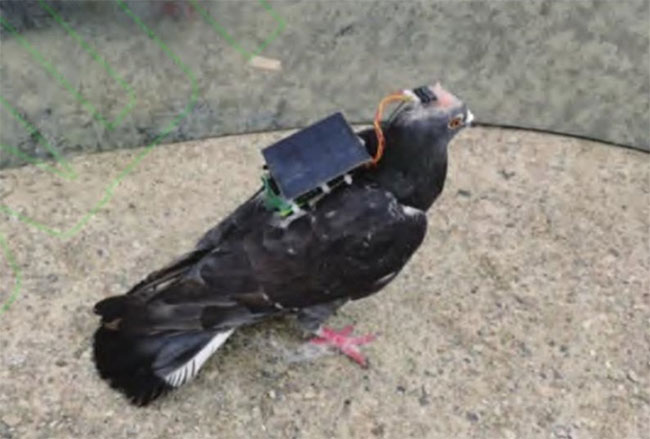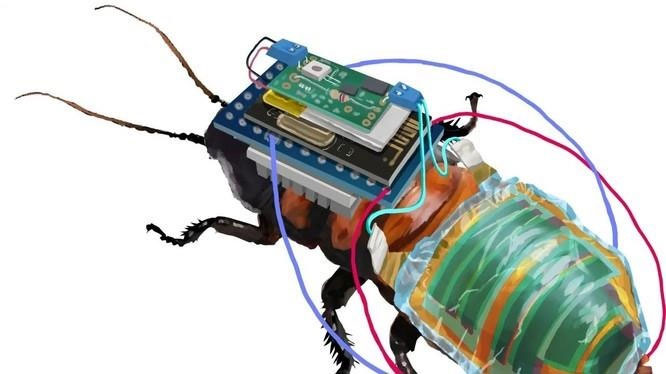Chinese scientists have successfully commanded pigeons using a solar-powered remote control.
According to Eurasiantimes, researchers from Shandong University of Technology and Engineering in China have successfully utilized a microelectrode implanted in the pigeons’ brains to control them remotely. The control device is powered by a solar panel attached to the pigeons’ backs.
Professor Huai Ruituo, the head of the research team, stated: “The microelectrode generates stimulating signals to different areas of the pigeon’s brain, allowing us to control its flight along a predetermined path. This technology is not new, but previously it could only operate for about 45 minutes due to battery size limitations.”

Remote control for pigeons. (Photo: JoBE)
“For outdoor animals like pigeons, solar power extends the duration and range of their tasks. When the battery is low, we can guide them to sunnier areas,” Professor Huai added.
Currently, the pigeons can follow movement commands and change direction with an accuracy of about 80-90%. In some cases, the pigeons may not respond to signals due to fatigue or distraction from unexpected factors.
This pigeon control device is an effective solution for aerial surveillance and intelligence gathering.

Remote control for insects from Japan. (Photo: SD)
A researcher in Beijing revealed that animal control technology has significant potential in the military field, not only in China but globally. Recently, Japanese scientists successfully developed a remote control for cockroaches, intended for searching for earthquake victims or collecting data in areas with high radiation levels.
In 2006, the U.S. Defense Advanced Research Projects Agency (DARPA) announced plans to create brainwave control devices for blue sharks to patrol and protect naval bases. Most recently, DARPA is reportedly researching ways to turn insects into bomb detection tools by implanting microchips in them while they are still in the pupal stage.


















































